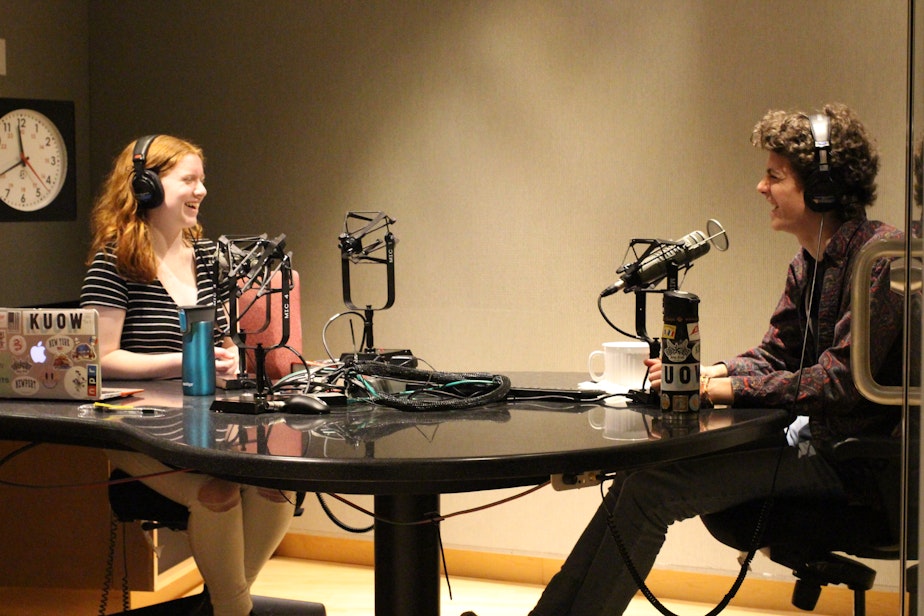'They're so complacent.' What these youth activists say about grown-ups

When students confronted Senator Dianne Feinstein for not supporting the Green New Deal, she put up her dukes.
"I've been doing this for 30 years," Feinstein said. "I know what I'm doing. You come in here and say, it's my way or the highway. I don't respond to that."
Local youth activists Lukas Illa and Grace Lambert weren't surprised by this reaction, and sat down with RadioActive's Jadenne Radoc Cabahug to share their experiences.
"Dianne Feinstein said, 'You're not a voter, so I know that opinion doesn't really matter.'
"That's just not true, because we are constituents. Your laws and your policies affect our lives," said Lukas Illa, a senior at Ingram High School. He was one of the organizers behind Seattle's March for Our Lives.
For Lukas, the Parkland shooting at Marjory Stoneman Douglas High School ignited his activism for gun reform.
"We are the future of this world," Grace Lambert said. "That's one thing that was done really well at the [Youth] Climate Strike. The adults were there, but they didn't have the attention. That's a really good way to help youth activism. Make sure that you're showing up, but that you're not there to make it about the adults."
Illa shared some reactions he has gotten from adults: “'You don’t know anything, sit down, you’ll have your turn later.’”
Illa believes this condescension goes way back. “They were told they couldn’t speak their minds when they were kids. I think when they see kids now saying things, there’s like this internal jealousy.”
“They’re complacent,” Lambert said. “They have jobs, lives, kids, and they don’t have enough time to dedicate themselves to this. They don’t really think that there’s anything that needs to be done a lot of the time. I think when they see these kids who are younger than them and doing these things, they’re like, we don’t need to do that.”
Lambert volunteered with Kim Schrier's campaign in the fall of 2018. Although she wants to do more political work, she finds it difficult to balance with school.
“It’s that time thing where you’re a student, and you want to be as involved as you can," Lambert said, "but when you’re a junior in high school, you only have so much time. I have the SAT on Wednesday, and I haven’t done as much studying for that as I should have.”
For his first protest, Illa admits he wanted to do everything because of “narcissism and wanting to do it all.”
But he also felt like he needed to share the workload, especially when he saw other activists take on so much work. “You just don’t want to delegate, and it’s not healthy for you,” he said.
Said Lambert: “It definitely at times has made me push school to the side and my mental health a little bit. You have to stay motivated because otherwise you would burn out.”
Even though they miss school, lose sleep and face criticism, Lukas Illa and Grace Lambert say it’s worth it.
“The youth are out here,” Illa said. “We are listening. We are engaging, and we can change this future. This is our future, and we want to better it.”
“You have to think about what happens if I stop doing this,” Lambert said. “Like, what happens if I stop pushing for change with climate change? It’s going to be me affected. It’s going to be my kids. It’s going to be the entire world.
“If I don’t do this, who’s going to?”
This story was created in KUOW's RadioActive Advanced Producers Workshop for teenagers, with production support from Mary Heisey. Edited by Marcie Sillman.
Find RadioActive on Facebook, Twitter and Instagram, and on the RadioActive podcast.
Support for KUOW's RadioActive comes from the Bill & Melinda Gates Foundation Discovery Center.



